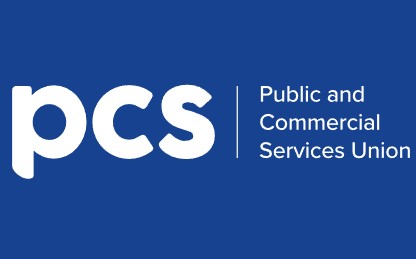Mary Jane Roberts, CEO of Mary's Charity talks about how to avoid drowning in your role at the top of an organisation.
_____________________________________________________________________
I trained as a lifeguard at a seen-better-days swimming pool with a high wire fence holding
back forest in upstate New York. A shouting, small powerpack of a man, a retired soldier, was
the trainer. The test at the end was in two parts. I failed the paper test by one mark and got
full marks in the practical. “Who do you want saving you when you’re drowning- the paper
test person or the practical test person?” I argued. He said: ‘The both person”.
It wasn’t the last time his truths have resounded with me. Another was that you have to be at
a distance from a drowning person in the water until you can approach them from behind so
they can’t grab you. Otherwise they could drown you too.
Being a CEO, and through our decisions being gatekeepers to services, is like a lifeguard on
watch. It’s tiring. You have to keep concentrating. There are big human consequences to our
role. And really, if we approach situations wrongly or are overburdened, it could take us
down.
So we need to work on how we deal with our list of requirements and manage to effectively
rest, stay sane and thrive.
The busier it gets the more investment and time for our thoughts is necessary. We’re in a
whirlpool of pressures from the cost of living crisis, and all kinds of uncertainty from war to
climate.
So how do we avoid drowning? One element is boundaries. The b word. Not exactly an area
that CEOs generally excel in. Private sector CEOs have company’s success: people’s jobs,
investments, protecting the value of the business. Charity CEOs can add to this potent list the
motivation of internal purpose, doing it because it’s right. Ideas for taking this bucket-tonne
of care and marshalling it into a viable amount of work? Here goes….
1. Pick showreel moments. Think of 2 or 3 things that your organisation can achieve in
the next 6 months. Make sure they are things you could say clearly in a film. This
doesn’t need to be fancy – I’m imagining you show it to your Trustees, but if you
want to go Spielberg in your mind, go for it. Then address those tasks in your
priorities. It will give you the clear sense that you know what you are working for, a
focus in chaos.
2. Money minibreak. Apply the same outlook of a minibreak – brief, but effective and
you’re so much happier after it – to the charity finances. There is almost no financial
state you can be in that doesn’t benefit from two days’ focus. Even if it feels like the
ship is sinking – taking yourself out of the vortex and getting a clear picture gives you
more knowledge for options. And regardless, it will mean you’re informed.
There is something to learn from the lifeguarding test failure, too. A mindset that failures can
open up different stories and options, and some of these are positive. As for my teenage self,
freshly dejected, I put on on board shorts and flip-flopped down the hill from the pool to the
art department. A good-looking guy leaning against a clapboard wall reading a philosophy
book looked up. The summer, in part because of the failure, went better than planned.
Latest News
-
Tributes paid to 'tenacious campaigner' who co-founded Terrence Higgins Trust
-
Man who set up fake animal charity jailed for five years
-
X-odus sparks video content boom among charities, report finds
-
Charity handed £25m endowment from autistic philanthropist to help others on the spectrum
-
Civil Society Covenant blighted by delays and U-turns, report warns
-
More than 30 jobs at risk as hospice charity looks to close home care service
Charity Times video Q&A: In conversation with Hilda Hayo, CEO of Dementia UK
Charity Times editor, Lauren Weymouth, is joined by Dementia UK CEO, Hilda Hayo to discuss why the charity receives such high workplace satisfaction results, what a positive working culture looks like and the importance of lived experience among staff. The pair talk about challenges facing the charity, the impact felt by the pandemic and how it's striving to overcome obstacles and continue to be a highly impactful organisation for anybody affected by dementia.
Charity Times Awards 2023
Mitigating risk and reducing claims

The cost-of-living crisis is impacting charities in a number of ways, including the risks they take. Endsleigh Insurance’s* senior risk management consultant Scott Crichton joins Charity Times to discuss the ramifications of prioritising certain types of risk over others, the financial implications risk can have if not managed properly, and tips for charities to help manage those risks.
* Coming soon… Howden, the new name for Endsleigh.
* Coming soon… Howden, the new name for Endsleigh.
Better Society

© 2021 Perspective Publishing Privacy & Cookies














Recent Stories